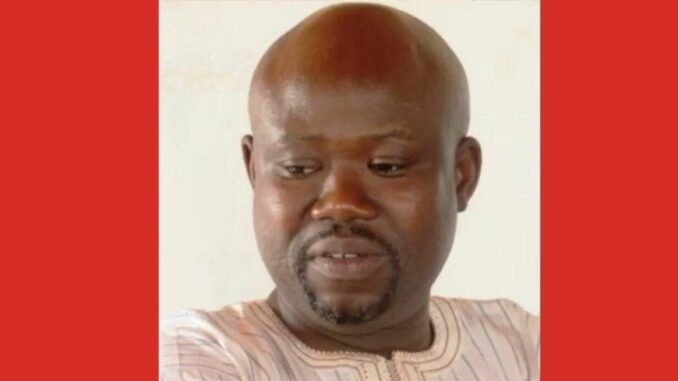
ARTICLE 19 is deeply concerned by the prosecution of journalists Musa Sheriff and Momodu Darboe over a report claiming that President Adama Barrow has chosen a successor – thereby suggesting that he does not intend to run for a third term in 2026 and sparking speculation, especially in light of the president’s silence on the matter. Both journalists are being charged with false publication and broadcasting (Section 181A of the criminal code), and have been accused of sharing ‘misleading information that could incite public alarm’.
ARTICLE 19 calls on authorities to release Musa Sherriff unconditionally and lift the bail orders against Momodou Darboe. Furthermore, we call for the authorities to end the criminalisation of journalism in The Gambia, to repeal defamation and libel provisions of the criminal code, as well as other provisions that restrict freedom of expression, including the Newspaper Act of 1944. Ahead of these repeals, authorities must refrain from using such legal provisions, which date back to the authoritarian regime of the Yahya Jammeh regime (1994-2017), and its attacks against journalists and legitimate forms of speech.
In response to their arrests, Alfred Nkuru BULAKALI, regional Director of ARTICLE 19 Senegal and West Africa, said: ‘Journalism is not a crime. These prosecutions, rooted in a Jammeh-era law designed to suppress free speech, threaten press freedom and public debate in The Gambia, undermining democracy and civic participation. The Gambia can be a champion of free press and free speech to foster democracy, civic participation, open government and development. We should have no further moves backwards, only steps forward toward a goal shared by civil society, media organisations, and political figures across the divide.’
The Declaration of Principles on Freedom of Expression and Access to Information highlights a key distinction between public figures and ordinary citizens regarding criticism. It explicitly states that public figures must endure a greater degree of scrutiny and criticism, recognising the essential role free speech plays in democratic accountability. Furthermore, the Principles set out that defamation sanctions should never be so severe that they stifle freedom of expression.
Imprisoning people on grounds of defamation is considered a violation of this fundamental right, and states are urged to repeal criminal defamation laws. Both the African Court on Human and Peoples’ Rights and the Economic Community of West African States Court of Justice have strongly condemned the use of imprisonment as punishment for defamation, particularly when applied to journalists. As these legal bodies assert, such punitive measures are inconsistent with international human rights norms and incompatible with the protection of free speech.
In line with this, Principle 22.2 of the Declaration calls for the abolition of laws that criminalise offences such as sedition, insult, and the publication of false news. These laws are often used to suppress dissent and silence journalists, which undermines democratic values and violates international human rights standards. Thus, the call for their repeal reflects a broader commitment to protecting freedom of expression in Africa and ensuring that legal frameworks do not unjustly target individuals for exercising their right to speak freely.
Background
On 26 September, 2024, authorities summoned Musa Sheriff Hydara, the Editor-In-Chief of The Voice Newspaper, and his deputy editor, Momodou Justice Darboe, for questioning at the Police Headquarters in Banjul. The summons followed The Voice’s publication of a news article on 23 September that alleged that President Barrow had chosen a business tycoon as his successor as part of a potential exit strategy. Both Darboe, the author of the article, and Musa Sheriff faced serious legal consequences. Sheriff was granted bail late in the evening of 26 September but was instructed to return to the police station on 27 September. Darboe, on the other hand, was charged with ‘false publication and broadcasting’ and spent the night in detention.
By 30 September, Sheriff had been officially charged with the offence, leading to his arrest and detention after he returned to the police station as requested. The charges against both journalists stem from police claims that the article contained ‘misleading information that could incite public alarm’.
For more information, please contact:
Maateuw Mbaye, Protection and Civic Space Officer, ARTICLE 19 Senegal/West Africa
Email: maateuwmbaye@article19.org Tel: +221785958337
ARTICLE 19 Senegal and West Africa
E-mail : senegal@article19.org ; W : www.article19.org
Twitter : @article19wafric ; @article19org
Facebook : facebook.com/Article19wafric ; facebook.com/article19org
